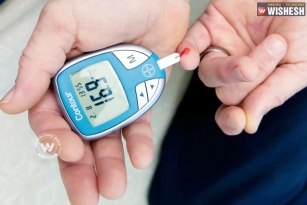
Who does not want to get a proper sleep at night, throwing away all mental and physical tensions aside??? But, thanks for a hectic life style filled with 'targets' to be completed and 'deadlines' to be met, both personally and professionally, adequate sleep has been almost impossible. but, just take some time out and know what all an adequate sleep could give us in return;
Heart attacks and strokes are more common during the early morning hours. This fact may be explained by the way sleep interacts with the blood vessels. Lack of sleep has been associated with worsening of blood pressure and cholesterol, all risk factors for heart disease and stroke. Your heart will be healthier if you get between 7 and 9 hours of sleep each night.
People working the late shift have a higher risk for breast and colon cancer. Researchers believe this link is caused by differing levels of melatonin in people who are exposed to light at night. Light exposure reduces the level of melatonin, a hormone that both makes us sleepy and is thought to protect against cancer. Melatonin appears to suppress the growth of tumors. Be sure that your bedroom is dark to help your body produce the melatonin it needs.
When your body is sleep deficient, it goes into a state of stress. The body's functions are put on high alert which causes an increase in blood pressure and a production of stress hormones. Higher blood pressure increases your risk for heart attacks and strokes. The stress hormones also, unfortunately, make it harder for you to sleep.
Researchers do not fully understand why we sleep and dream, but a process called memory consolidation occurs during sleep. While your body may be resting, your brain is busy processing your day, making connections between events, sensory input, feelings and memories. Your dreams and deep sleep are an important time for your brain to make memories and links. Getting more quality sleep will help you remember and process things better.
Researchers have also found that people who sleep less than seven hours per night are more likely to be overweight or obese. It is thought that the lack of sleep impacts the balance of hormones in the body that affect appetite. The hormones ghrelin and leptin, important for the regulation of appetite, have been found to be disrupted by lack of sleep. So if you are interested in controlling or losing weight, don't forget to pay attention to getting a good night's sleep.
Sleep impacts many of the chemicals in your body, including serotonin. People with a deficiency in serotonin are more likely to suffer from depression. You can help to prevent depression by making sure you are getting the right amount of sleep, between 7 and 9 hours each night.
Sleep is a time for your body to repair damage caused by stress, ultraviolet rays and other harmful exposures. Your cells produce more protein while you are sleeping. These protein molecules form the building blocks for cells, allowing them to repair damage.






















